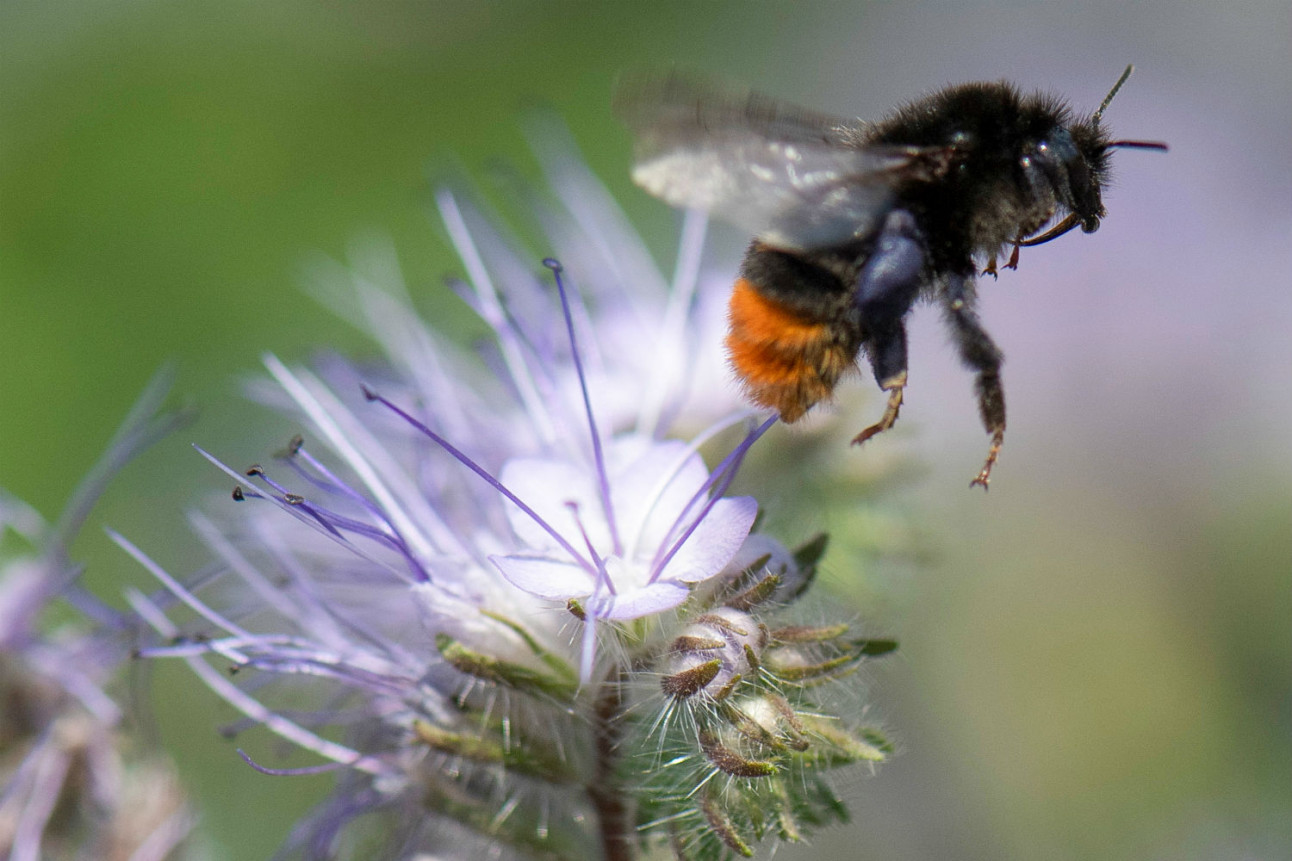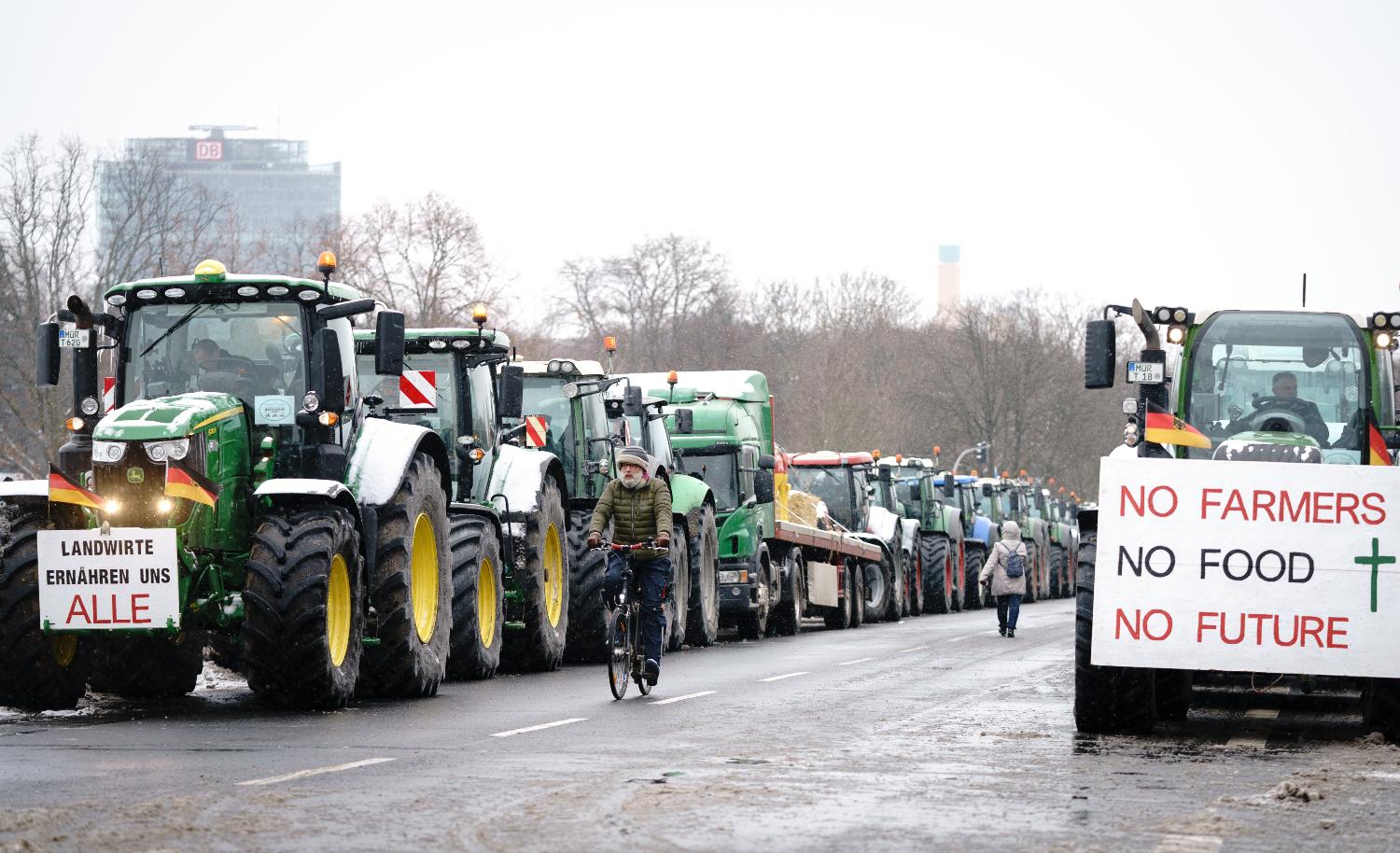The “insect protection” law, which aims to restrict the use of pesticides, is the result of two years of wrangling within Chancellor Angela Merkel's coalition government.
Hundreds of farmers drove their tractors into central Berlin on Tuesday, braving snow and frosty temperatures, to protest against the government's “insect protection” draft law.
“No farmers, no food, no future” read a sign fixed to one tractor near the city's famed Brandenburg Gate. “We are here, talk to us” read another.
The policy package's flagship measure is the phasing out of the
controversial weedkiller glyphosate by the end of 2023.
It also bans the use of herbicides and insecticides in national parks and includes rules for reducing light pollution at night.
“People can't live without insects,” said Environment Minister Svenja Schulze, calling the law “good news for insects and the future of our ecosystems”.
The legislation also limits the use of pesticides near major bodies of water, but the final version of the text leaves it up to Germany's individual states to set out detailed requirements.
READ ALSO: On heels of Bavaria victory, Germany plans insect protection law
“We're not against insect protection, but it needs to be adapted to modern agricultural practices,” 28-year-old farmer Wilke Luers said from behind the wheel of his tractor at the Berlin protest.
The government has argued that urgent action is needed because insects “play an important role in the ecosystem”.
Biologists have long warned that plummeting insect populations impact species diversity and damage the ecosystem by disrupting natural food chains and plant pollination.
'Taken far too long'
The German Farmers' Association (DBV) said in a letter addressed to Merkel that the planned legislation could reduce available agricultural land by seven percent.
It called for “cooperation” between farmers and environmentalists, and measures built around incentives instead of bans.
But Tomas Brückmann, from the Grüne Liga environmental organisation, dismissed the suggestion.
“We've been trying to cooperate with them for 20 years, it doesn't work,” he told AFP.

Archive photo shows a summer bee spotted in Friedberg in Hesse. Photo: DPA
His campaign group has urged the government not to water down the plans in the face of pressure from agricultural firms.
“The government must finally anchor into law the package of measures to protect insects that it committed to two years ago,” the group said in a statement. “It has taken far too long.”
German Environmental Minister Svenja Schulze, from the centre-left Social Democrats, first unveiled the insect protection proposals in 2019.
But the government's sign-off was repeatedly delayed by objections from conservative Agriculture Minister Julia Klöckner, who pushed for exceptions to some of the rules.
The final compromise thrashed out between the ministers will be revealed on Wednesday.
Green shift
The gulf between farmers and environmental activists has deepened in Germany in recent years as concerns about climate change have grown, partly because of the youth-led Fridays for Future protests.
The opposition Green party now regularly comes second in opinion polls after Merkel's conservative bloc, and it could well end up in a coalition government following September's general election.
READ ALSO: German bug watchers sound alarm to insect apocalypse
The shift in the public mood has spurred Merkel's government to act on animal welfare, leading to recent pledges to stop the mass culling of male chicks and ending the practice of castrating piglets without anaesthetic.
But farmers complain that they are carrying the cost for the new measures, and that the tougher regulations won't allow them to compete with cheaper agricultural products from abroad.
A large-scale study in Germany in 2017 was one of the first to raise global alarm bells about the plunge in insect populations, triggering warnings of an “ecological apocalypse”.
The study found that, measured by weight, flying insect populations across German nature reserves had declined by more than 75 percent in 27 years.



 Please whitelist us to continue reading.
Please whitelist us to continue reading.
No insects -> No food.